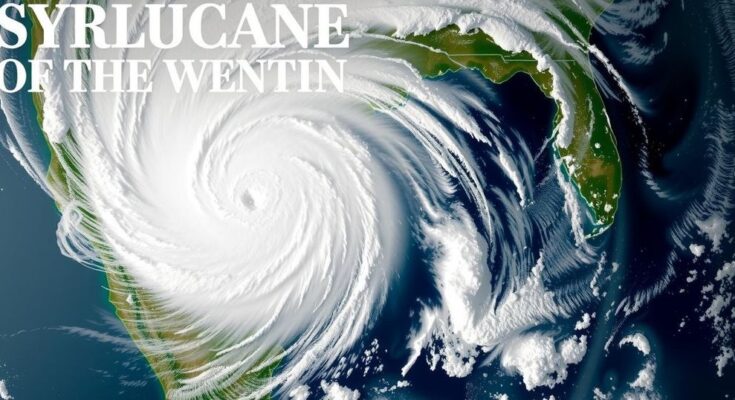Cyclone Chido has caused significant destruction in Mayotte, a French territory, with reported fatalities. Wind speeds exceeding 220 kph have left many residents vulnerable, while local and French authorities respond with rescue efforts. The cyclone is expected to move towards Mozambique, potentially affecting millions and raising concerns about flooding. The intensity of such cyclones raises alarm regarding climate change impacts in southern Africa.
Cyclone Chido has wreaked havoc on Mayotte, a French territory located in the Indian Ocean, resulting in several fatalities, as reported by officials on Saturday. French Interior Minister Bruno Retailleau stated that initial assessments are provisional, with hopes that the damage toll will not be substantial. However, the island is reported to be severely devastated by winds exceeding 220 kph (136 mph). Prime Minister François Bayrou emphasized the destruction of public facilities, including the hospital, airport, and administrative buildings, leaving many vulnerable residents at significant risk. Meanwhile, President Emmanuel Macron is actively monitoring the situation, as the island grapples with the worst cyclone since 1934.
In response to the disaster, the French Interior Ministry has dispatched 1,600 police officers to assist in rescue operations and to mitigate potential looting. Rescuers from mainland France and nearby Reunion have also arrived on the island, with further reinforcements scheduled. Unfortunately, many homes have been left without power, and numerous structures have been damaged or destroyed.
As Cyclone Chido approaches the African mainland, it is also impacting neighboring Comoros, prompting authorities to issue high alerts and close key facilities. The cyclone is anticipated to hit Mozambique’s northern provinces, where local disaster agencies are preparing for potential widespread flooding that could affect up to 2.5 million people. The cyclone season in the region is historically fraught with severe storms, and the increased intensity of these weather events is linked to climate change, which disproportionately affects poorer nations in southern Africa that have minimal contributions to global warming.
Cyclones in the southeastern Indian Ocean typically peak during the December to March season, historically causing considerable damage across southern Africa. Nations such as Mozambique, Malawi, and Zimbabwe have endured significant impacts from past cyclones. Cyclone Idai (2019) resulted in the deaths of over 1,300 individuals across the affected regions, while Cyclone Freddy (2022) claimed over 1,000 lives. The consequences of such cyclones are exacerbated by climate change, resulting in enhanced storm intensity and increased humanitarian crises in affected areas.
Cyclone Chido poses a severe threat to Mayotte and surrounding regions, with extensive damage reported and potential for further casualties. As rescue and recovery efforts begin, the need for support and infrastructure repair is paramount. The impending impact on Mozambique, where millions may face flooding, highlights vulnerabilities linked to the cyclone season and the broader consequences of climate change, particularly for economically disadvantaged nations. Immediate action and assistance are essential to prevent further loss of life and property.
Original Source: www.cnn.com




